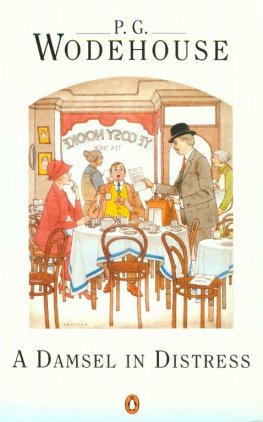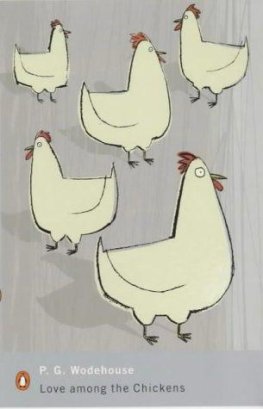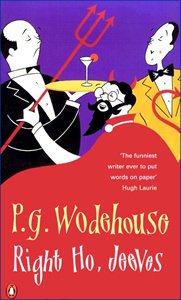Pelham Wodehouse - Psmith, Journalist
Here you can read online Pelham Wodehouse - Psmith, Journalist full text of the book (entire story) in english for free. Download pdf and epub, get meaning, cover and reviews about this ebook. genre: Prose / Humor. Description of the work, (preface) as well as reviews are available. Best literature library LitArk.com created for fans of good reading and offers a wide selection of genres:
Romance novel
Science fiction
Adventure
Detective
Science
History
Home and family
Prose
Art
Politics
Computer
Non-fiction
Religion
Business
Children
Humor
Choose a favorite category and find really read worthwhile books. Enjoy immersion in the world of imagination, feel the emotions of the characters or learn something new for yourself, make an fascinating discovery.

- Book:Psmith, Journalist
- Author:
- Genre:
- Rating:5 / 5
- Favourites:Add to favourites
- Your mark:
- 100
- 1
- 2
- 3
- 4
- 5
Psmith, Journalist: summary, description and annotation
We offer to read an annotation, description, summary or preface (depends on what the author of the book "Psmith, Journalist" wrote himself). If you haven't found the necessary information about the book — write in the comments, we will try to find it.
Psmith, Journalist — read online for free the complete book (whole text) full work
Below is the text of the book, divided by pages. System saving the place of the last page read, allows you to conveniently read the book "Psmith, Journalist" online for free, without having to search again every time where you left off. Put a bookmark, and you can go to the page where you finished reading at any time.
Font size:
Interval:
Bookmark:
Psmith, Journalist
by Pelham Grenville Wodehouse
PREFACE
THE conditions of life in New York are so different from those of London that a story of this kind calls for a little explanation. There are several million inhabitants of New York. Not all of them eke out a precarious livelihood by murdering one another, but there is a definite section of the population which murdersnot casually, on the spur of the moment, but on definitely commercial lines at so many dollars per murder. The "gangs" of New York exist in fact. I have not invented them. Most of the incidents in this story are based on actual happenings. The Rosenthal case, where four men, headed by a genial individual calling himself "Gyp the Blood" shot a fellow-citizen in cold blood in a spot as public and fashionable as Piccadilly Circus and escaped in a motor-car, made such a stir a few years ago that the noise of it was heard all over the world and not, as is generally the case with the doings of the gangs, in New York only. Rosenthal cases on a smaller and less sensational scale are frequent occurrences on Manhattan Island. It was the prominence of the victim rather than the unusual nature of the occurrence that excited the New York press. Most gang victims get a quarter of a column in small type.
P. G. WODEHOUSE
New York, 1915
CHAPTER I
"COSY MOMENTS"
The man in the street would not have known it, but a great crisis was imminent in New York journalism.
Everything seemed much as usual in the city. The cars ran blithely on Broadway. Newsboys shouted "Wux-try!" into the ears of nervous pedestrians with their usual Caruso-like vim. Society passed up and down Fifth Avenue in its automobiles, and was there a furrow of anxiety upon Society's brow? None. At a thousand street corners a thousand policemen preserved their air of massive superiority to the things of this world. Not one of them showed the least sign of perturbation. Nevertheless, the crisis was at hand. Mr. J. Fillken Wilberfloss, editor-in-chief of Cosy Moments, was about to leave his post and start on a ten weeks' holiday.
In New York one may find every class of paper which the imagination can conceive. Every grade of society is catered for. If an Esquimau came to New York, the first thing he would find on the bookstalls in all probability would be the Blubber Magazine, or some similar production written by Esquimaux for Esquimaux. Everybody reads in New York, and reads all the time. The New Yorker peruses his favourite paper while he is being jammed into a crowded compartment on the subway or leaping like an antelope into a moving Street car.
There was thus a public for Cosy Moments. Cosy Moments, as its name (an inspiration of Mr. Wilberfloss's own) is designed to imply, is a journal for the home. It is the sort of paper which the father of the family is expected to take home with him from his office and read aloud to the chicks before bed-time. It was founded by its proprietor, Mr. Benjamin White, as an antidote to yellow journalism. One is forced to admit that up to the present yellow journalism seems to be competing against it with a certain measure of success. Headlines are still of as generous a size as heretofore, and there is no tendency on the part of editors to scamp the details of the last murder-case.
Nevertheless, Cosy Moments thrives. It has its public.
Its contents are mildly interesting, if you like that sort of thing. There is a "Moments in the Nursery" page, conducted by Luella Granville Waterman, to which parents are invited to contribute the bright speeches of their offspring, and which bristles with little stories about the nursery canary, by Jane (aged six), and other works of rising young authors. There is a "Moments of Meditation" page, conducted by the Reverend Edwin T. Philpotts; a "Moments Among the Masters" page, consisting of assorted chunks looted from the literature of the past, when foreheads were bulgy and thoughts profound, by Mr. Wilberfloss himself; one or two other pages; a short story; answers to correspondents on domestic matters; and a "Moments of Mirth" page, conducted by an alleged humorist of the name of B. Henderson Asher, which is about the most painful production ever served up to a confiding public.
The guiding spirit of Cosy Moments was Mr. Wilberfloss. Circumstances had left the development of the paper mainly to him. For the past twelve months the proprietor had been away in Europe, taking the waters at Carlsbad, and the sole control of Cosy Moments had passed into the hands of Mr. Wilberfloss. Nor had he proved unworthy of the trust or unequal to the duties. In that year Cosy Moments had reached the highest possible level of domesticity. Anything not calculated to appeal to the home had been rigidly excluded. And as a result the circulation had increased steadily. Two extra pages had been added, "Moments Among the Shoppers" and "Moments with Society." And the advertisements had grown in volume. But the work had told upon the Editor. Work of that sort carries its penalties with it. Success means absorption, and absorption spells softening of the brain.
Whether it was the strain of digging into the literature of the past every week, or the effort of reading B. Henderson Asher's "Moments of Mirth" is uncertain. At any rate, his duties, combined with the heat of a New York summer, had sapped Mr. Wilberfloss's health to such an extent that the doctor had ordered him ten weeks' complete rest in the mountains. This Mr. Wilberfloss could, perhaps, have endured, if this had been all. There are worse places than the mountains of America in which to spend ten weeks of the tail-end of summer, when the sun has ceased to grill and the mosquitoes have relaxed their exertions. But it was not all. The doctor, a far-seeing man who went down to first causes, had absolutely declined to consent to Mr. Wilberfloss's suggestion that he should keep in touch with the paper during his vacation. He was adamant. He had seen copies of Cosy Moments once or twice, and he refused to permit a man in the editor's state of health to come in contact with Luella Granville Waterman's "Moments in the Nursery" and B. Henderson Asher's "Moments of Mirth." The medicine-man put his foot down firmly.
"You must not see so much as the cover of the paper for ten weeks," he said. "And I'm not so sure that it shouldn't be longer. You must forget that such a paper exists. You must dismiss the whole thing from your mind, live in the open, and develop a little flesh and muscle."
To Mr. Wilberfloss the sentence was almost equivalent to penal servitude. It was with tears in his voice that he was giving his final instructions to his sub-editor, in whose charge the paper would be left during his absence. He had taken a long time doing this. For two days he had been fussing in and out of the office, to the discontent of its inmates, more especially Billy Windsor, the sub-editor, who was now listening moodily to the last harangue of the series, with the air of one whose heart is not in the subject. Billy Windsor was a tall, wiry, loose-jointed young man, with unkempt hair and the general demeanour of a caged eagle. Looking at him, one could picture him astride of a bronco, rounding up cattle, or cooking his dinner at a camp-fire. Somehow he did not seem to fit into the Cosy Moments atmosphere.
"Well, I think that that is all, Mr. Windsor," chirruped the editor. He was a little man with a long neck and large pince-nez, and he always chirruped. "You understand the general lines on which I think the paper should be conducted?" The sub-editor nodded. Mr. Wilberfloss made him tired. Sometimes he made him more tired than at other times. At the present moment he filled him with an aching weariness. The editor meant well, and was full of zeal, but he had a habit of covering and recovering the ground. He possessed the art of saying the same obvious thing in a number of different ways to a degree which is found usually only in politicians. If Mr. Wilberfloss had been a politician, he would have been one of those dealers in glittering generalities who used to be fashionable in American politics.
Font size:
Interval:
Bookmark:
Similar books «Psmith, Journalist»
Look at similar books to Psmith, Journalist. We have selected literature similar in name and meaning in the hope of providing readers with more options to find new, interesting, not yet read works.
Discussion, reviews of the book Psmith, Journalist and just readers' own opinions. Leave your comments, write what you think about the work, its meaning or the main characters. Specify what exactly you liked and what you didn't like, and why you think so.



